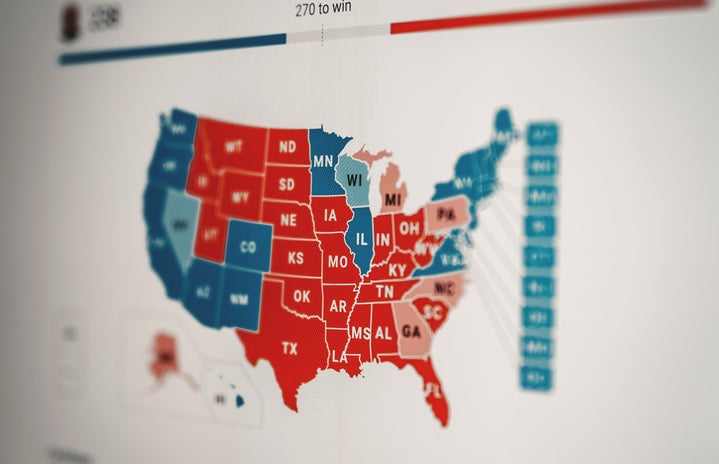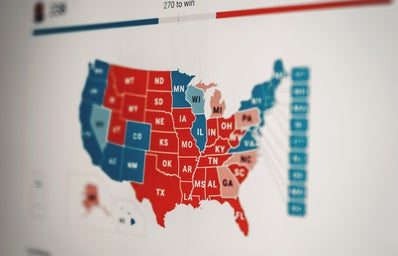TW: Discussion/mention of sexual assault, r*pe, islamophobia, misogyny
In a stunning turn of events, Donald Trump has secured victory in the 2024 U.S. presidential election, marking his return to the White House for a second term. This development has sent shockwaves across the globe, sparking intense debate and concern amongst international observers. This article presents a collection of British perspectives on Trump’s re-election, exploring the potential implications for America and the world at large. From the impact on women’s rights and minority communities to broader geopolitical concerns, these British voices offer a unique insight into how Trump’s presidency is perceived across the Atlantic.
Impact on Women’s Rights
The re-election of Donald Trump has raised significant concerns about the future of women’s rights in America and beyond. Our perspectives reflect a deep disappointment and apprehension, highlighting the potential setbacks for gender equality and women’s healthcare under Trump’s second term. This outcome could jeopardise hard-won progress and pose significant challenges to women’s autonomy and well-being.
Emma: “I find it utterly terrifying that as a society, people would rather have a convicted felon on 34 accounts and sexual assault accusations of 26 to become President, rather than a woman. A very qualified woman. Our hatred for women will poison us all.”
Momnah: “The fact that Donald Trump was able to begin his second presidency regardless of him being a convicted felon over a highly qualified woman is insane and terrifying. And the idea that some women had to wake up to find out that their sexual abuser was elected president really shows how deep the hatred and neglect for women goes in the US and how this is an ongoing battle for women everywhere.”
Fatima: “For women, Trump’s re-election poses significant concerns as his previous administration’s policies and appointments had already made a profound impact on access to reproductive healthcare and his return could further erode these rights. Having a man like Donald Trump in power means that voices of women and underrepresented groups will continue to be marginalised and silenced. His re-election serves as a stark reminder of how deeply entrenched these patriarchal structures are in our society.”
Jaya: “His election creates a precedent for inequality that women globally have been fighting against for centuries.”
Eliza: “I asked my male friends how they felt about the election on election night. One claimed ‘I don’t really care what happens because it’s not my country, it’s not going to affect me’. I very much disagree. I feel a connection to all women, wherever they may be. And although I do not live in the USA, I still feel a great sense of solidarity to the women who do. The fact that a highly qualified woman was not deemed worthy enough to lead, but a convicted felon was is infuriating. Women must stand up for, and protect each other. When we come together in unity, we can and will make a difference. And one day, I hope the women of the USA will get to see a woman leading the country.”
Concerns over Women’s Reproductive Rights
Donald Trump claims that his administration will be great for women and their reproductive rights.
Well, let’s fact check that:
- Trump openly takes credit for “killing” Roe v. Wade—federal protections for abortion. Research estimates that nearly 65,000 U.S. rape victims could not access abortions in their states. Yet, he claims this is great for women’s reproductive rights.
- In 2023, Trump was found liable for sexual abuse against E. Jean Carroll.
- Trump has made disturbing comments sexualizing young children. He once remarked about a 10-year-old girl, “I’m going to be dating her in 10 years.”
- Let’s not forget Trump’s comments about his own daughter, Ivanka Trump, in 2006: “If Ivanka weren’t my daughter, perhaps I’d be dating her.”
- Trump’s previous administration implemented policies that cut funding to organisations providing comprehensive health services including contraception and family planning.
Consequences for Minority Communities
Alarm bells are also being raised for minority communities both within the US and globally. We explore the apprehensions surrounding Trump’s second term and its implications for diversity and inclusion.
Jaya: “It is impossible to ignore the detrimental effects another Trump presidency is going to have on every single minority community around the world. It’s genuinely terrifying.”
Fatima: “For muslim communities both within America and abroad, this outcome raises significant concerns about the increased discrimination, policy changes and a surge in Islamophobic sentiment.The potential for increased surveillance, travel restrictions and discriminatory policies could create an atmosphere of fear and marginalisation. This not only affects the daily lives of Muslim individuals but also threatens the principles of religious freedom and cultural diversity. The international community watches with concern, as the treatment of Muslim communities in the US often sets a precedent for global attitudes and policies.”
The ripple effects of his policies and rhetoric could potentially embolden far-right movements globally, leading to increased discrimination and hostility towards minority groups. This fear is not unfounded, given the surge in hate crimes and divisive policies witnessed during his previous term.
Global Perceptions and Concerns
As Brits, the concerns raised over Trump’s re-election internationally are crucial. The outcome of the U.S. presidential election has far-reaching implications that extend beyond America’s borders.
Jaya: “Watching the election in the UK, it is easy to think of Trump as some comedic, cartoonish villain, off terrorising far away people, but that minimises the very real and very serious consequences this second term could have for everyone.”
Fatima: “How can I articulate the profound dismay I experienced upon witnessing America’s self-inflicted wound—the re-election of Trump as President of the United States? I watched with disbelief and concern as the votes for Trump increased. As a Brit, I’m bewildered that America has voted for a man who has openly made sexualising comments about young girls, been found liable for sexual abuse, takes credit for removing federal protections for abortion, and openly makes racist and anti-Muslim remarks.”
The Harris Campaign and Gender Politics
The outcome of the election has reignited discussions about gender politics in the American political landscape. Despite being a highly qualified candidate, Kamala Harris faced challenges that many British observers attribute, at least in part, to her gender. This perspective aligns with the concerns raised previously about the persistent barriers faced by women in politics.
Harris is a qualified candidate, though Trump, parts of the American electorate, and some of the global audience will argue the contrary. What the coming months will show is a denial that Kamala Harris’s gender played a role in this outcome. The next step will be for the public to compare her to Clinton; however, Harris’s campaign will not fall into obscurity. She brought voting to the younger generation, rather than the other way around. Her womanhood should not be denied as a factor, not only because American history demonstrates the suspicion of both female and non-white candidates but also because her femininity appeared inconsistent with social stereotypes. Her support of both gun ownership and control, desire to better monitor immigration, and more balanced taxation do not show a “bleeding heart” but a focused vision for improving and stabilising the country. Harris was more than her protection of reproductive rights.
Her campaign emphasised her qualifications, experience and vision for America’s future. Despite facing challenges and criticisms, Harris’s run for the US presidency has undoubtedly contributed to an ongoing dialogue about representation and diversity in American politics. This impact of her campaign will likely be felt for years to come, influencing future generations of women and minorities aspiring to leadership roles in government.
Conclusion
The re-election of Donald Trump in 2024 presents significant challenges for American democracy and society. This outcome highlights a concerning trend in American politics, where support for a leader with divisive rhetoric and policies that have been seen to undermine democratic norms has persisted. It underscores the urgent need for enhanced civic education and critical thinking skills among the electorate.
As we move forward, it is crucial to consider the potential impacts of this election on various communities within the United States and globally, particularly those who have historically faced marginalisation or have been targeted by Trump’s previous policies. The coming years will likely see increased scrutiny on the resilience of democratic institutions and the long-term effects on social cohesion and political stability.
This election serves as a reminder of the ongoing work needed to strengthen democratic processes, promote inclusive policies, and foster a more informed and engaged citizenry. As the world watches, the actions taken in response to this election will be critical in shaping the future of American democracy and its role on the global stage.
Written by: Fatima Ahmed, Jaya Noonan, Felicity Field, Eliza Green, Momnah Shahnaz, Emma Collins
Edited by: Fatima Ahmed


